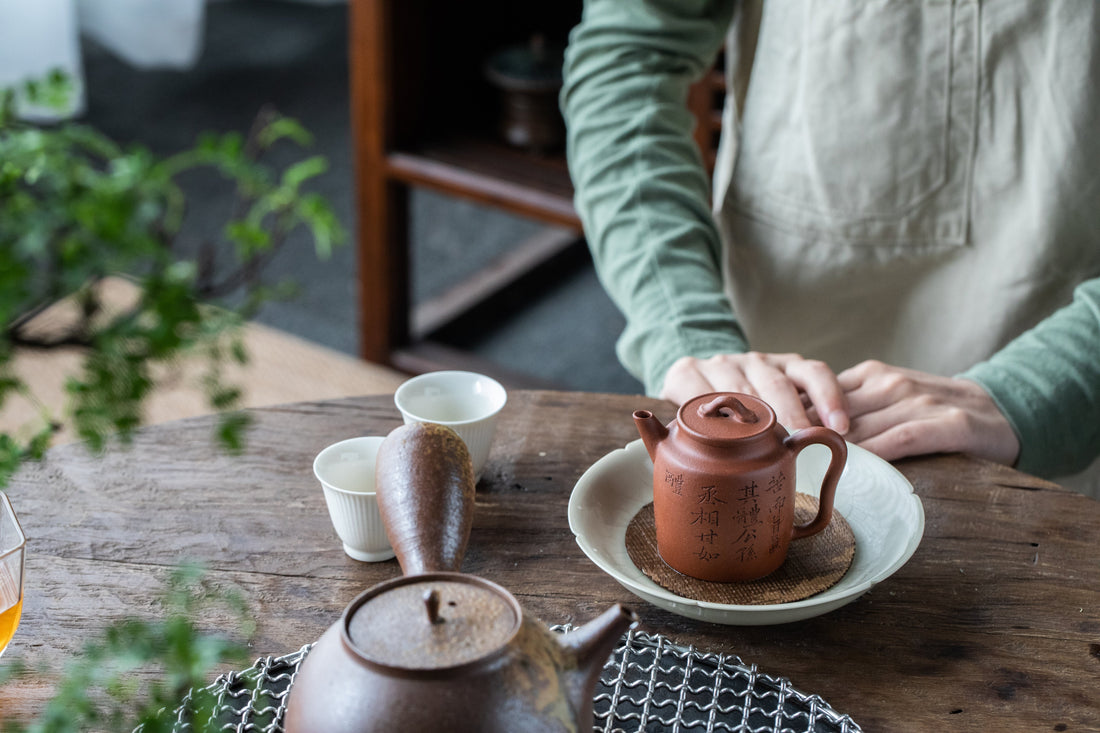
What is Oolong Tea?
Oolong tea is a traditional Chinese tea that lies somewhere between green and black tea in terms of oxidation and flavour. Known for its unique production process and rich, complex taste, Oolong tea has gained popularity worldwide among tea enthusiasts and health-conscious individuals alike. Whether you’re a seasoned tea drinker or a curious beginner, this guide will help you understand what makes Oolong tea so special.
The Origins of Oolong Tea
Oolong tea, also called "Wulong" tea, has its roots in China, with a history dating back hundreds of years. It originates primarily from Fujian and Guangdong provinces, as well as Taiwan, where traditional methods are still used to produce high-quality leaves. The name "Oolong" translates to "black dragon," which is thought to describe the dark, curled appearance of the tea leaves.
How is Oolong Tea Made?
Oolong tea is made using a unique process that sets it apart from green and black tea. Here are the main steps:
Plucking: Tea leaves are carefully picked when they are young and tender.
Withering: The leaves are spread out to wither under the sun, reducing their moisture content and making them pliable.
Oxidation: This is the defining step for Oolong tea. Leaves are partially oxidised to varying degrees, typically between 15% and 80%, creating a spectrum of flavours.
Rolling: After oxidation, the leaves are rolled or twisted into their signature shapes, which can range from tightly curled balls to long, elegant strands.
Drying: The leaves are dried to lock in their flavour and aroma.
This careful craftsmanship results in a tea that boasts a wide range of flavours, from floral and fruity to creamy and nutty.
What Does Oolong Tea Taste Like?
The flavour of Oolong tea can vary greatly depending on the level of oxidation and the region where it is grown. Lighter Oolongs, such as those from Taiwan, often have floral and sweet notes, while darker Oolongs, like those from Fujian, can be more robust with roasted, nutty undertones. The tea’s complexity makes it a favourite for pairing with meals or enjoying on its own.
Health Benefits of Oolong Tea
Oolong tea is not just a treat for the taste buds; it’s also packed with health benefits. Here are some of the key advantages:
Boosts Metabolism: The caffeine and catechins in Oolong tea can help increase energy expenditure and support weight management.
Supports Heart Health: Regular consumption of Oolong tea has been linked to lower cholesterol levels and improved heart health.
Promotes Digestive Health: The tea’s gentle tannins can aid digestion and soothe the stomach.
Rich in Antioxidants: Oolong tea is a source of polyphenols, which combat oxidative stress and support overall wellness.
Improves Mental Clarity: The combination of caffeine and theanine in Oolong tea can enhance focus and reduce stress.
How to Brew Oolong Tea
Brewing Oolong tea correctly is essential to unlock its full flavour. Follow these simple steps:
Use Fresh, Filtered Water: Heat the water to about 85°C–95°C (185°F–203°F), just below boiling.
Measure the Tea: Use about 1 teaspoon (2 grams) of Oolong tea leaves per 200ml of water.
Steep: Pour the hot water over the leaves and steep for 3–5 minutes. Adjust the time based on your taste preference.
Re-Steep: Oolong tea leaves can be re-steeped multiple times, with each infusion offering new layers of flavour.
Why Choose Oolong Tea?
Oolong tea offers a unique balance between the freshness of green tea and the depth of black tea. Its diverse flavour profiles and numerous health benefits make it a versatile choice for any tea lover. Whether you’re looking for a morning pick-me-up, an afternoon indulgence, or a mindful evening ritual, Oolong tea is sure to delight.
Frequently Asked Questions About Oolong Tea
Q: Is Oolong tea caffeinated?
A: Yes, Oolong tea contains moderate levels of caffeine, making it a great choice for a gentle energy boost.
Q: Can Oolong tea help with weight loss?
A: Oolong tea may support weight management by boosting metabolism and aiding fat oxidation, especially when paired with a healthy lifestyle.
Q: What’s the best time to drink Oolong tea?
A: Oolong tea can be enjoyed at any time of day, but it’s particularly popular as an afternoon pick-me-up or after meals to aid digestion.
Disclaimer
This article is for informational purposes only and is not a substitute for professional medical advice. Always consult a healthcare professional before adding any new teas or supplements to your diet, especially if you are pregnant, nursing, have a medical condition, or are taking medication.
